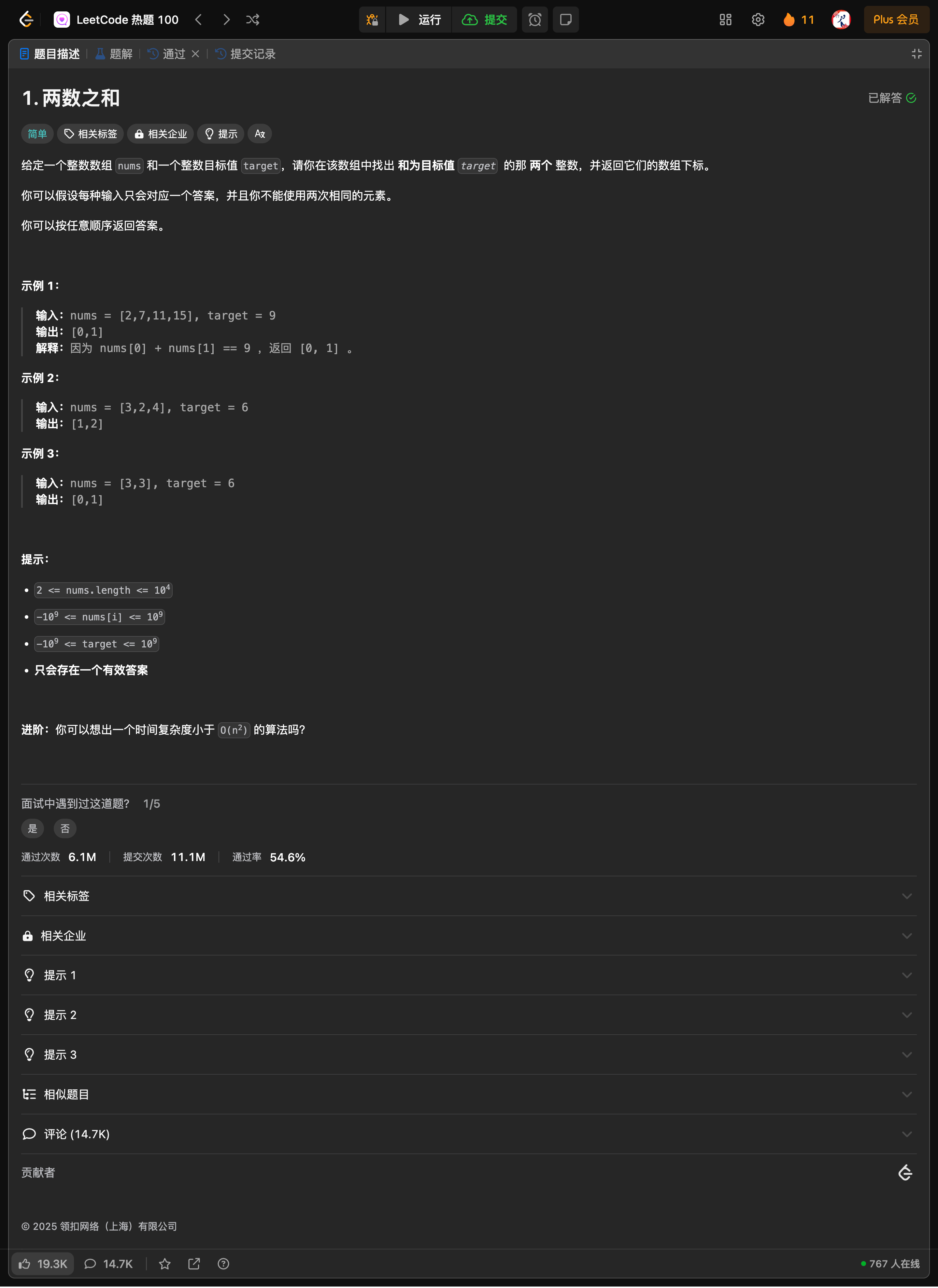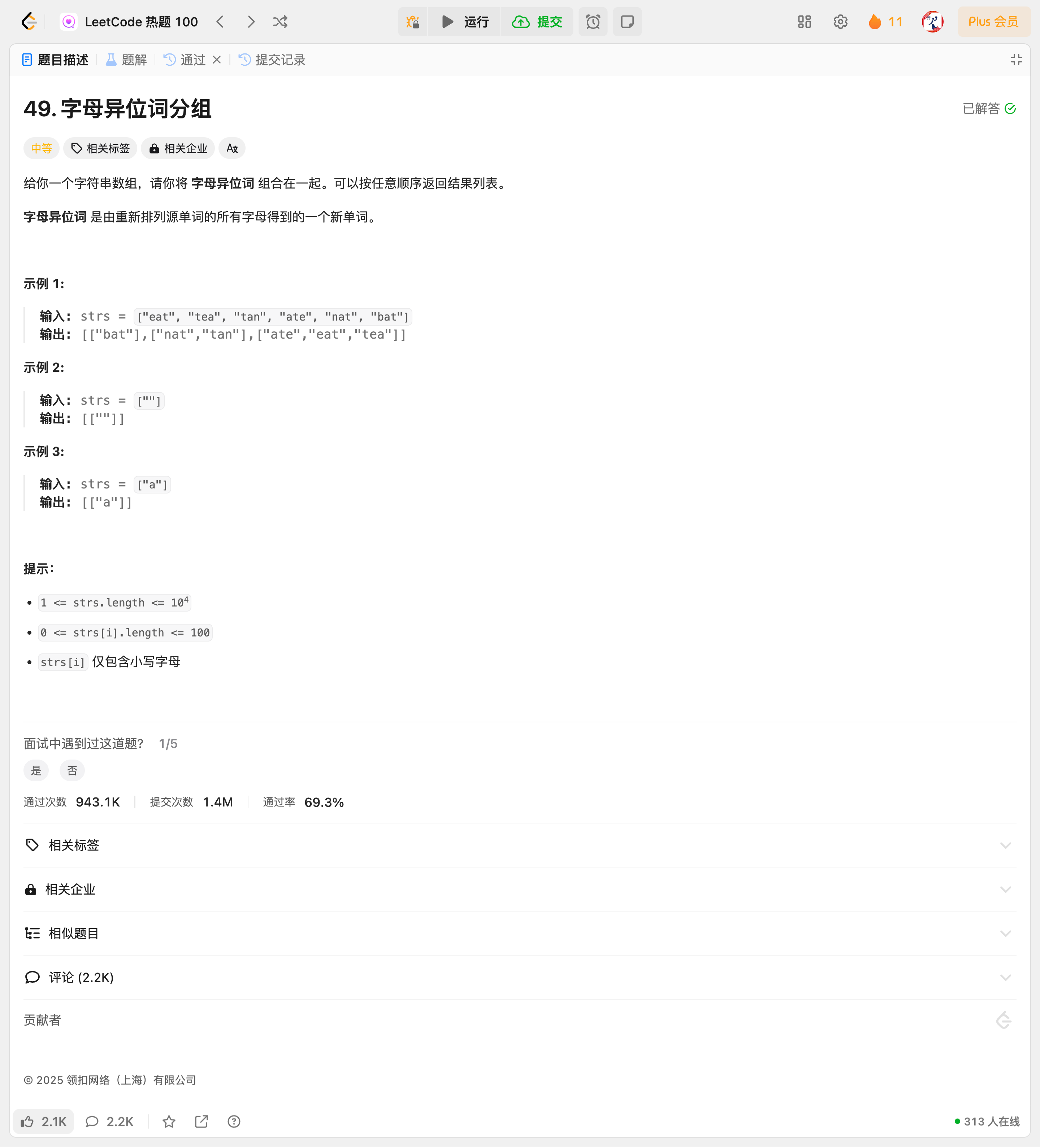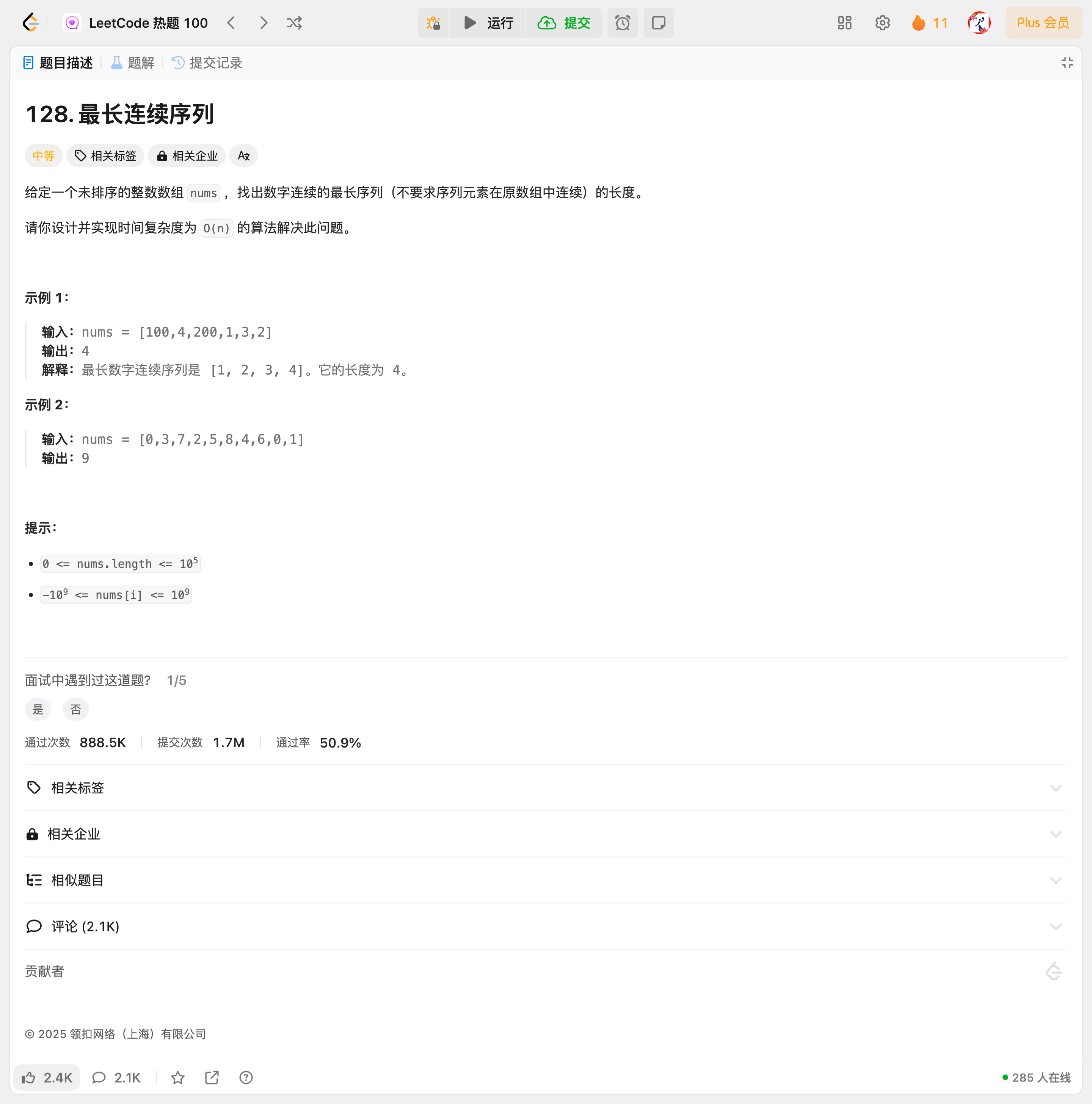hot100系列——哈希
两数之和

知识点
-
unordered_map有find操作,传入待查询的key值- 如果有对应
key值,则返回位于该位置的迭代器; - 如果没有对应
key值,则返回unordered_map::end()迭代器
- 如果有对应
解题思路
- 首先初始化一个
unordered_map,nums中的元素作为key,每个元素的下标作为value - 遍历
nums数组中的每一个元素num- 如果
unorder_map找到target - num,则返回对应的下标和num对应下标i - 如果没有找到,则将当前元素在
unordered_map中对应的value设置为i
- 如果
- 以上的算法步骤保证了,如果遍历较小的元素没有找到符合要求的组合,那么在遍历组合中较大的元素时,就可以找到较小的元素,进而返回组合
实现代码
class Solution {
public:
vector<int> twoSum(vector<int>& nums, int target) {
unordered_map<int, int> hashtable;
for(int i = 0; i < nums.size(); i ++){
auto it = hashtable.find(target - nums[i]);
if(it != hashtable.end()){
return {it->second, i};
}
hashtable[nums[i]] = i;
}
return {};
}
};
字母异位词分组

知识点
-
emplace_back成员函数- 在
vector或者unorderd_map尾部添加一个新的元素 - 与
push_back相比,emplace_back直接在容器内部的内存空间构造对象,避免了临时空间的复制与删除。提高了性能
- 在
- 对于
unordered_map,使用迭代器it遍历访问unordered_map中的每一个元素-
it->self表示这个元素的key -
it->second表示这个元素的value
-
解题思路
- 使用排序后的字符串的作为哈希表的
key- 异位词中的字母(样式和数量)都是相同的,所以排序后的字符串也必然是相同的
- 哈希表的
value为vector<string>用来存储同一组异位词 - 最后将每组异位词存入
ans
实现代码
class Solution {
public:
vector<vector<string>> groupAnagrams(vector<string>& strs) {
unordered_map<string, vector<string>> mp;
for(string& str: strs){
string key = str;
sort(key.begin(), key.end());
mp[key].emplace_back(str);
}
vector<vector<string>> ans;
for(auto it = mp.begin(); it != mp.end(); it ++){
ans.emplace_back(it->second);
}
return ans;
}
};
最长连续序列

知识点
-
unordered_set中的元素都是唯一的,没有重复的解题思路
- 题中要求我们在$\Omega(n)$的时间复杂度中完成搜索
- 我们考虑使用
unordered_set进行存储,这样可以排除重复元素的干扰,因为重复元素不能算作连续序列 - 如果使用暴力搜索,对于一个元素
x,我们要遍历整个数组来搜索x + 1, x + 2, x + 3, ... , x + y,这样的算法时间复杂度为$\Omega(n^2)$,显然不符合要求 - 为了优化算法时间复杂度,在搜索时,对于元素
x,我们首先判断x - 1是否在unordered_set中- 如果在,则跳过当前对当前
x的遍历,因为从x - 1开始的连续序列一定要长于从x开始的连续序列,没有继续搜索的必要 - 如果不在,则执行循环,寻找下一个
x + 1, x + 2, ..., x + y是否在序列中
- 如果在,则跳过当前对当前
-
ans = max(ans, y - x)- 因为
int y = x + 1和在循环中执行了y ++,所以直接y - x就是最长序列的长度
- 因为
实现代码
class Solution {
public:
int longestConsecutive(vector<int>& nums) {
int ans = 0;
unordered_set<int> st(nums.begin(), nums.end());
for(int x : st){
if(st.contains(x - 1)){
continue;
}
int y = x + 1;
while(st.contains(y))
y ++;
ans = max(ans, y - x);
}
return ans;
}
};
Enjoy Reading This Article?
Here are some more articles you might like to read next: